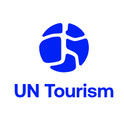Tourism Sector To Continue Taking Action On Plastic Pollution
A new set of Recommendations published today outline how the global tourism sector can continue in its fight against plastic pollution while effectively facing the public health and hygiene challenges of the COVID-19 pandemic.
The ongoing pandemic has hit the tourism sector hard, putting more than 100 million jobs at risk. Now, as countries begin to recover and tourism restarts in a growing number of destinations, the Global Tourism Plastics Initiative, led by the World Tourism Organization (UNWTO), the United Nations Environment Programme (UNEP) and in collaboration with the Ellen MacArthur Foundation, has provided a plan of action for both public and private sector stakeholders to address the root causes of plastic pollution in these challenging times.
The Recommendations for the Tourism Sector to Continue Taking Action on Plastic Pollution During COVID-19 Recovery illustrate how reducing the plastic footprint, increasing the engagement of suppliers, working closer with waste service providers, and ensuring transparency on the actions taken, can significantly contribute to the responsible recovery of the tourism sector.
Businesses and governments united
UNWTO Secretary-General Zurab Pololikashvili said: "As the tourism sector restarts, we have a responsibility to build back better. Not managing the transition into the new reality we are facing, including the strong focus on health and hygiene measures, in a responsible manner may have a significant environmental impact, which is why this renewed commitment is vitally important. We are proud to announce the first signatories to the Global Tourism Plastics Initiative today."
When not properly disposed of, products such as gloves, masks and sanitiser bottles can end up polluting the natural environments around major tourist destinations.
UNEP Economy Division Director, Ligia Noronha adds: "We need to take a science-based approach and support governments, business, and local communities to ensure we are taking the most effective measures to protect hygiene and health without creating pollution and causing harm to our natural environment. These recommendations addressing hygiene and disposable plastic can support tourism sector stakeholders in their efforts towards a responsible recovery.
Accor, Club Med and Iberostar Group Commit to Initiative
The recommendations come as major global tourism companies Accor, Club Med, and Iberostar Group cement their commitment to fighting plastic pollution and become three of the first official signatories to the Global Tourism Plastics Initiative, along with more than 20 signatories from across all continents, including major industry players and supporting organisations which will act as multipliers. Alongside these, the World Wide Fund for Nature (WWF) is a member of the Global Tourism Plastics Initiative Advisory Committee and has informed these latest recommendations.
About the Global Tourism Plastics Initiative
The Global Tourism Plastics Initiative unites the tourism sector behind a common vision to address the root causes of plastic pollution. It enables businesses and governments to take concerted action, leading by example in the shift towards a circularity in the use of plastics. Developed within the framework of the Sustainable Tourism Programme of the One Planet network, a multi-stakeholder partnership to implement SDG 12 on Sustainable Consumption and Production, the Global Tourism Plastics Initiative is led by the United Nations Environment Programme and the World Tourism Organisation, in collaboration with the Ellen MacArthur Foundation.
The full list of signatories and their commitments can be found here.
RELATED LINKS:
About UN Tourism
The World Tourism Organization (UN Tourism) is the United Nations agency responsible for the promotion of responsible, sustainable and universally accessible tourism.
As the leading international organization in the field of tourism, UN Tourism promotes tourism as a driver of economic growth, inclusive development and environmental sustainability and offers leadership and support to the sector in advancing knowledge and tourism policies worldwide.
Our Priorities
Mainstreaming tourism in the global agenda: Advocating the value of tourism as a driver of socio-economic growth and development, its inclusion as a priority in national and international policies and the need to create a level playing field for the sector to develop and prosper.
Promoting sustainable tourism development: Supporting sustainable tourism policies and practices: policies which make optimal use of environmental resources, respect the socio-cultural authenticity of host communities and provide socio-economic benefits for all.
Fostering knowledge, education and capacity building: Supporting countries to assess and address their needs in education and training, as well as providing networks for knowledge creation and exchange.
Improving tourism competitiveness: Improving UN Tourism Members' competitiveness through knowledge creation and exchange, human resources development and the promotion of excellence in areas such as policy planning, statistics and market trends, sustainable tourism development, marketing and promotion, product development and risk and crisis management.
Advancing tourism's contribution to poverty reduction and development: Maximizing the contribution of tourism to poverty reduction and achieving the SDGs by making tourism work as a tool for development and promoting the inclusion of tourism in the development agenda.
Building partnerships: Engaging with the private sector, regional and local tourism organizations, academia and research institutions, civil society and the UN system to build a more sustainable, responsible and competitive tourism sector.
Our Structure
Members: An intergovernmental organization, UN Tourism has 160 Member States, 6 Associate Members, 2 Observers and over 500 Affiliate Members.
Organs: The General Assembly is the supreme organ of the Organization. The Executive Council take all measures, in consultation with the Secretary-General, for the implementation of the decisions and recommendations of the General Assembly and reports to the Assembly.
Secretariat: UN Tourism headquarters are based in Madrid, Spain. The Secretariat is led by the Secretary-General and organized into departments covering issues such as sustainability, education, tourism trends and marketing, sustainable development, statistics and the Tourism Satellite Account (TSA), destination management, ethics and risk and crisis management. The Technical Cooperation and Silk Road Department carries out development projects in over 100 countries worldwide, while the Regional Departments for Africa, the Americas, Asia and the Pacific, Europe and the Middle East serve as the link between UN Tourism and its 160 Member States. The Affiliate Members Department represents UN Tourism's 500 plus Affiliate members.
